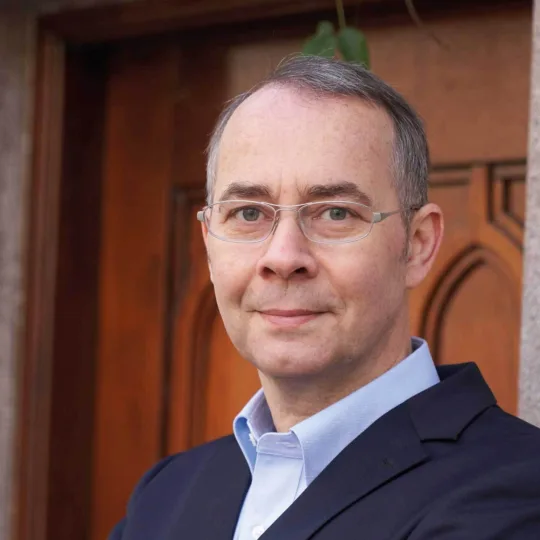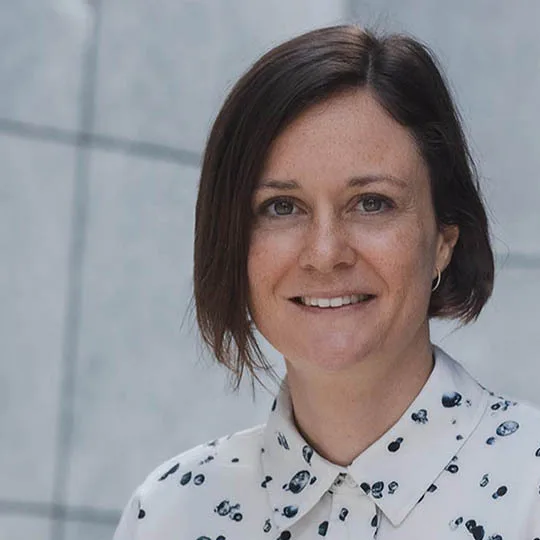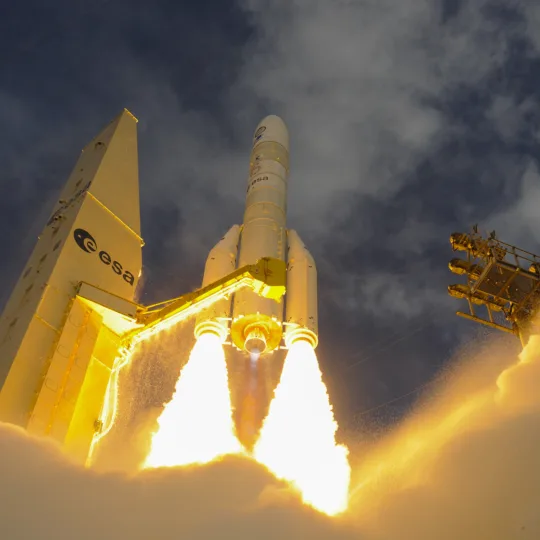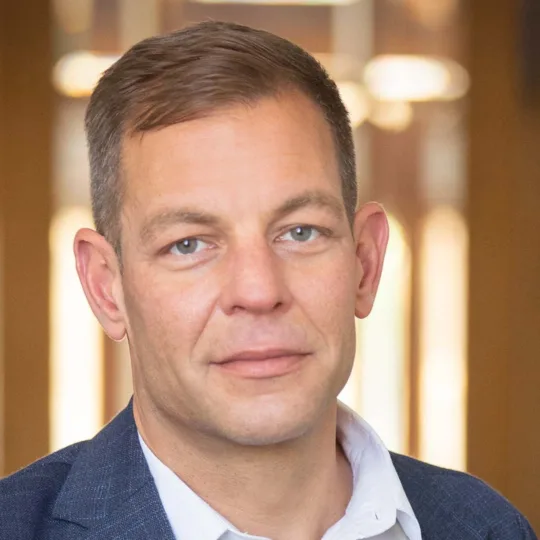Creating added value for Switzerland and Japan
Japan is an important country for Switzerland in terms of bilateral cooperation in education, research and innovation. The Swissnex network opened its sixth key location in September in Osaka. We talk with Felix Moesner, CEO of Swissnex in Japan.
Japan was added to the Swissnex network at the end of September, bringing the number of its key locations to six. Why Japan, and why Osaka in the Kansai region?
Japan is the world’s second largest like-minded economic superpower and has been a decades-long valuable partner to Switzerland in terms of economic and research cooperation. Both countries are competitive and innovative and they share similar values: democracy, trust, a high standard of quality, risk prevention, solid research and long-term relationships. The new Swissnex location in Osaka will consolidate this cooperation.
Kansai, with its 21 million inhabitants, is home to the world’s fastest supercomputer – Fugaku – as well as numerous top universities, the latter of which have already signed more than 20 cooperation agreements with Swiss universities. In addition, various innovation-oriented companies such as Panasonic and Nintendo have their headquarters in the Kansai region.
Where do you see the greatest potential for Swiss-Japanese cooperation in education, research and innovation?
Japan is one of Switzerland’s eight priority countries in its foreign policy strategy and an excellent partner for bilateral research cooperation. In 2007, Switzerland and Japan signed a cooperation agreement in science and technology, which was only recently expanded to include a memorandum of understanding (MoU). The aim of the MoU is to ensure that Switzerland and Japan cooperate more on a ‘systemic’ level in strategic areas such as quantum technology, artificial intelligence and robotics. Japan’s extensive understanding of technology and its quality standards benefit start-ups too. For example, as Swissnex, we advised 53 Swiss start-ups in 2022 in Japan, while the places for the 2023 Internationalisation Camp, which we are holding in conjunction with Innosuisse, were snapped up in no time.
What unique characteristics of Japanese culture do Swiss partners need to know?
Although Japan and Switzerland share similar values, there are key differences in their culture, politics and language. Specific aspects that are interesting are forward-looking research funding with five-year plans, a dynamic culture of innovation combining tradition and modern technology and, of course, the language barrier – but this isn’t such a problem as Japanese scientists have a good command of English.
What are Swissnex’s thematic priorities in Japan?
Japan is at the forefront of addressing some of the societal challenges that go beyond national borders; especially the topics of sustainability and ageing are a focus, but so too is fostering start-ups. Switzerland can benefit from the solutions Japan finds and find its own answers to these questions.
The six key Swissnex locations focus their activities based on the UN’s Sustainable Development Goals (SDGs) and assign them to their own thematic priorities. Our goals in Japan are SDG 3 (Good Health and Wellbeing), SDG 9 (Industry, Innovation and Infrastructure) and SDG 11 (Sustainable Cities and Communities).

Felix Moesner studied electrical engineering at ETH Zurich, completed his PhD at the Institute of Robotics in collaboration with the University of Tokyo, and graduated with an MBA from MIT. After his time in a postdoctoral position at ETH, he moved to industry, where he ended up heading the IT department of a major Swiss bank in Tokyo. In 2003, he became Science & Technology Counselor at the Swiss Embassy in Tokyo, where he helped implement the Swiss-Japanese Agreement on Cooperation in Science and Technology (signed in 2007), and established the science office as well as various academic networks. Before moving to Japan, he was the CEO of Swissnex in China (2017-2021) and Swissnex in Boston (2012-2017).
How does your previous experience as CEO of Swissnex in China and before that in Boston help you in your current job?
My experiences in Shanghai, Boston and Tokyo were instrumental in ensuring that I didn't have to start from scratch in Japan. My primary goal is to increase the visibility of Swiss education and research institutions, to connect researchers, start-ups and institutions, and to highlight trends in the ERI sector. One advantage, of course, was already knowing the nature and workings of Swissnex, which helped us to find the right location in Osaka, shape the local Swissnex structure, recruit a team with the right skillset and build up a network. I found this initial phase fascinating and instructive.
You’ve been working hard over the last few months for the opening. What was that like?
The whole team worked hard to make sure that the opening went according to plan. We also had to overcome some uncertainties: for example, the construction work only ended just before the celebrations, which was a challenge for us. In the end, though, everything worked out well.
We chose the theme ‘Breakthrough Trends in Sustainability’ for the opening, using this theme to highlight outstanding ERI achievements. State Secretary Martina Hirayama and her delegation together with nine start-ups illustrated these achievements perfectly. A further highlight was the signing of the Switzerland-Japan science and technology MoU in the presence of ministers, the Governor of Osaka and high-ranking guests and the media. The Science & Technology in Society Forum in Kyoto with several Swiss ERI representatives maximised the impact of our opening and made Swissnex known as Japan’s first science consulate.
World Expo 2025 is taking place in Osaka. How will Swissnex be participating?
Our increased involvement in Japan is of course also linked to the 2025 expo in Osaka. The theme of the World Expo is Designing Future Society for our Lives. We’re planning to be in the Swiss Pavilion together with Presence Switzerland. This will provide Swiss ERI stakeholders with an excellent opportunity to present their innovative projects for a sustainable future to a very broad audience, including high-ranking representatives. The sub-themes covered at the expo such as ‘Life – life sciences, health and nutrition’, ‘Planet – environment, sustainability, climate and energy’, and ‘Augmented Human – robotics and artificial intelligence’ fit well with our main points of focus.
The Swissnex network
Swissnex is the Swiss global network connecting Switzerland and the world in education, research and innovation. Its mission is to support the outreach and active engagement of its partners in the international exchange of knowledge, ideas and talent, thus contributing to boosting Switzerland’s reputation as a hotspot for innovation.
Contact
Author



